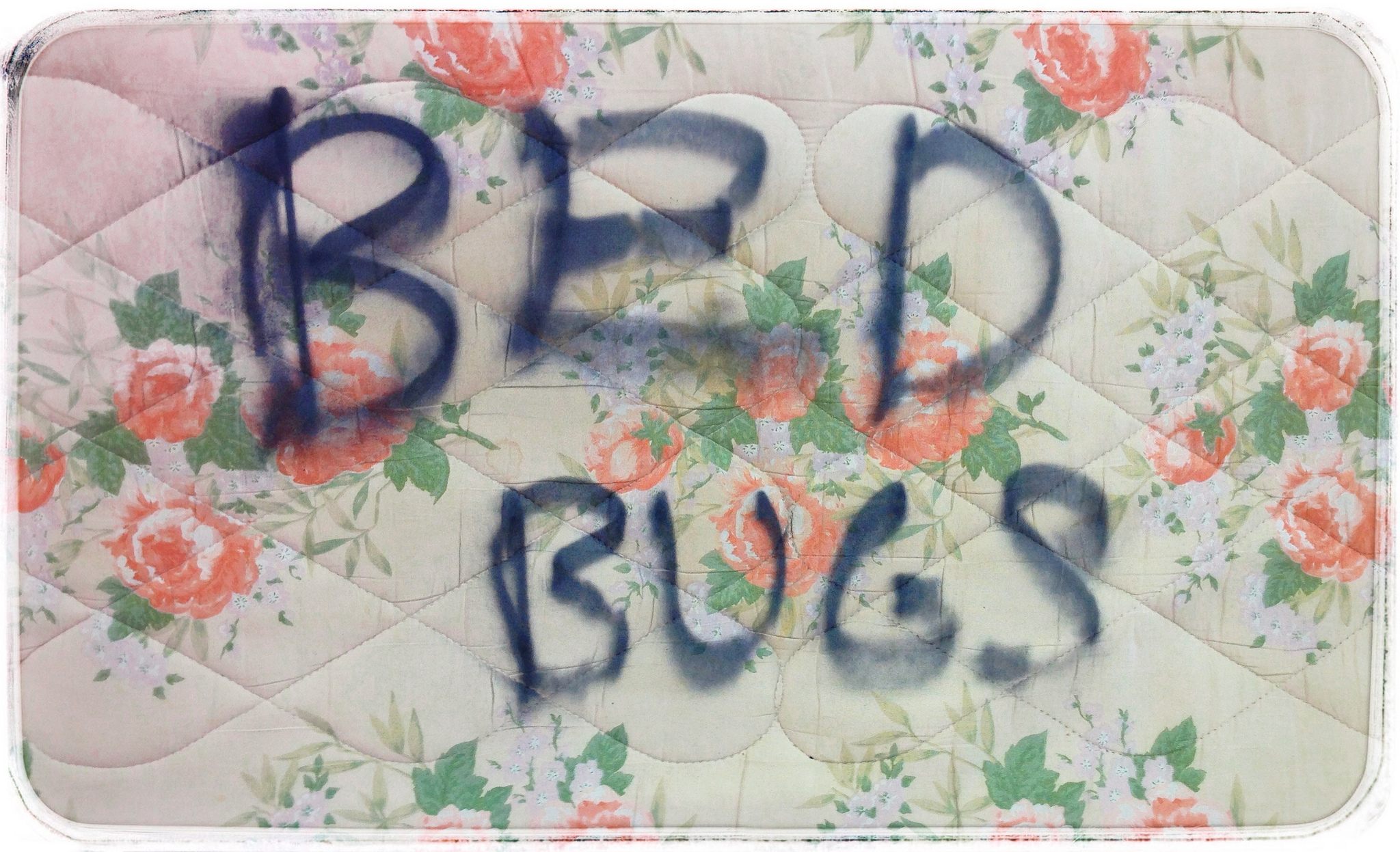Interviewing the Country’s Preeminent Bed Bug Lawyer
Bed bugs are a menace, but there are lawyers out there joining the fight.

Bed bugs are more than just a household pest. The tenacious little monsters can hide in cracks as thin as a credit card, they can live for a year without eating, and they attack in the dead of night. Even their reproduction is messed up—via a process called “traumatic insemination,” where the male literally stabs the female in the abdomen with his sharp penis. We thought that we’d gotten rid of them in the mid-20th century, but thanks to pesticide restrictions and a lack of vigilance has seen them make a ferocious resurgence by the 2000s.
And this being America, the bed bug scourge has doubled as a legal opportunity.
A segment of lawyers has appeared who specialize in the growing field of bed bug law. These lawyers generally work to protect the rights of tenants and other plaintiffs who are in situations where they have been affected by bed bugs and the property owners refuse to take action. Most of the cases come from urban areas where multi-unit housing is most common, and where the bugs can spread with ease, and a quick Google search for “bed bug lawyer” will bring up multiple pages of lawyers ready to hear your pleas.

Do not take mattresses off the street. (Photo: Orin Zebest/CC BY 2.0)
To find out exactly what life as a bed bug lawyer was like, we spoke to a pioneer in the field, Daniel W. Whitney, managing partner of Whitney LLP, who was a defense lawyer for 30 years before focusing much of his practice on the victims of bed bugs. At any given time, Whitney LLP will be dealing with around 60 bed bug cases, with more calls coming in every day. His practice is known for winning over juries—one client was awarded $800,000—surprising sums for bugs that don’t actually leave scars.
Around five years ago, Whitney got interested in handling cases involving bed bug infestations. “It came out of my own personal situation in which my college-age daughter came home from Europe, and thought that she had brought bed bugs home with her,” says Whitney. “This triggered a very expensive treatment of my home, and the realization that I just couldn’t handle it with an ordinary can of Raid. I started thinking, ‘Wow. This has some real liability implications.’”

Daniel W. Whitney (Photo courtesy of Daniel W. Whitney)
His first bed bug case was a teacher out of Baltimore County, who had bed bugs and couldn’t get anyone to help her get rid of them. When Whitney took her case, she broke down crying with relief. After that, more bed bug cases began pouring in, as word spread about a legal recourse to dealing with bed bugs. As Whitney told us, most of the bed bug complaints his firm, which is based in Maryland, but handles cases from across the country, receives come from multi-unit housing situations like low income housing projects, as well as hotels where guests get bit or pick up the bugs. Still other cases come from workplaces, hospitals, and a surprising number of rent-to-own style, used furniture leasing companies.
Most states and localities follow the International Property Maintenance Code, or even some stricter regional ordinance, that prescribes that rental properties must be free of infestation before they are rented, and if they are found to be infested, according to Whitney, that the issue is dealt with in a timely manner. However, professional extermination services can be costly, so unscrupulous landlords often ignore the issue or drive the tenant out to avoid paying an exterminator. Many of his clients come from lower-income communities, and don’t speak out for fear of eviction. “It’s a short sighted focus on short term profit. Because the problem always gets worse. Up until recently, they were counting on all these poor people not getting legal council,” says Whitney.
When a client does come to Whitney’s firm looking for help, their case is first assessed based on the severity of the situation, and whether it’s actionable. If they take the case, Whitney and his lawyers will investigate the property’s pest control records, communications between the tenants and the landlords, take witness depositions, and even contact former tenants. “We’ll track down the prior tenants, [who often say,] ‘Yeah, we had the same problem. We left there because we were being eaten alive. We complained and complained and they never did anything about it,’” says Whitney. “We’ve seen that time and time again.”

An adult bed bug. (Photo: Gilles San Martin/CC BY-SA 2.0)
In many cases, the legal strategy revolves around proving that the landlord actively deceived the tenants about the existence of a bed bug infestation in a property they are moving into, or negligence on the part of the property owner in dealing with bed bugs as they occur, but Whitney has also tried more unconventional approaches. “I have had a couple cases where I tried out a battery theory. Uninvited touching. Offensive contact.” says Whitney. This approach argues that the defendant put into motion the situation where a tenant was in offensive contact with the bugs. “The analogy is, if you have an [apartment infested with mice], and you put a nice big piece of cheese in the middle of the room, you’re putting into motion those mice to come feed on that cheese.” Of course, the blood of tenants is to bed bugs, as cheese is to metaphorical mice.
Many of the bed bug cases Whitney’s firm takes end up going to trial, as he pushes past landlords and insurance companies that try to reach what he sees as unfair settlements. From the way Whitney tells it, his firm has seen a lot of success in trial thanks to how damaging the human costs of a serious bed bug infestation can be. “A number of cases involve young single moms with babies. So, you’ve got a baby getting eaten up by bed bugs and it’s upsetting. You don’t want to see people get treated that way,” says Whitney.
Settlements from successful litigation vary depending on the case. “The success of a settlement is completely fact-driven,” says Whitney. “To give you an idea of the range, some clients just want to be let out of their lease without penalty. At the other end of the spectrum are six-figure settlements.” A client of his, for instance, got an $800,000 award in 2013.

Hope you never have to see a bed bug this close. (Photo: Gilles San Martin/CC BY-SA 2.0)
Whitney described to us one of his most upsetting cases in memory involving an elderly woman who was mostly confined to a wheelchair, and whose residence was infested with bed bugs—“She had scars all over her body that would make you cry. It was hideous.” In addition to a long-standing issue with the bugs, the exterminators that were hired over the years also pumped gallons of pesticides into her apartment, contributing to chronic breathing issues. When the frail old woman was unable to move the furniture to prepare for the spraying, she was fined.
For his part, Whitney says that early in his career, he never would have envisioned becoming “The Bed Bug Lawyer,” but other lawyers he talks to respect his new direction. “Every lawyer I’ve dealt with, when they’re off the record, is fairly disgusted by bed bugs,” says Whitney. “They would go berserk if they had them in their home.”
But that is not to say that everyone has been happy with Whitney and company’s bed bug focus. “I did have one instance where I tried to book a room somewhere where I had a case against an affiliated company,” says Whitney. “And they said they just didn’t have any room at the inn for me.” No one has ever said fighting bed bugs was easy.










Follow us on Twitter to get the latest on the world's hidden wonders.
Like us on Facebook to get the latest on the world's hidden wonders.
Follow us on Twitter Like us on Facebook